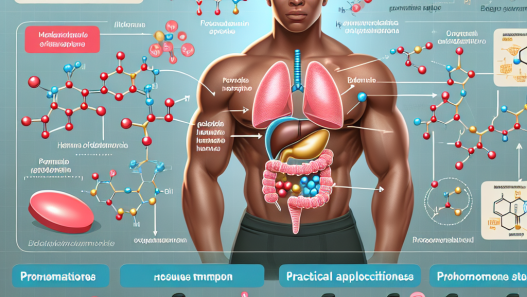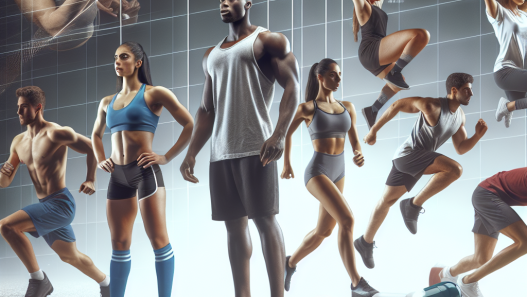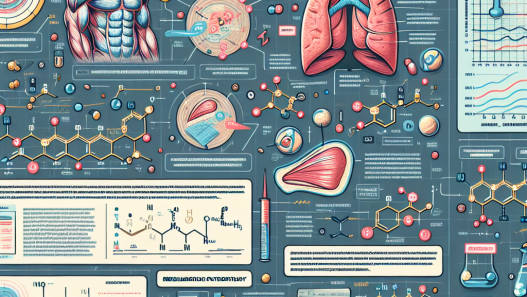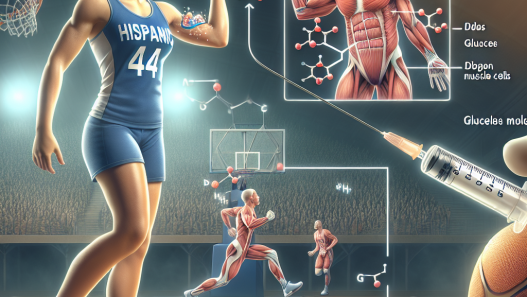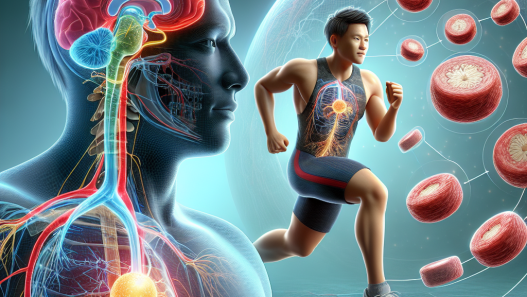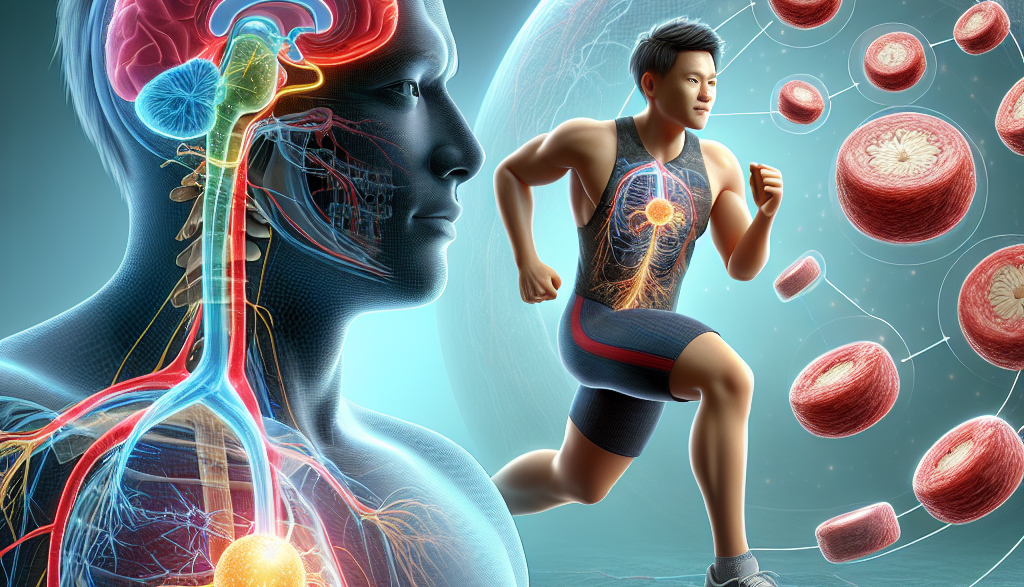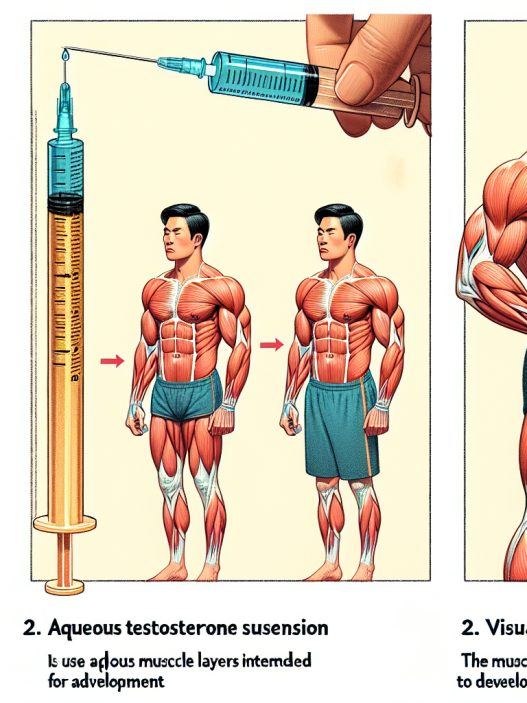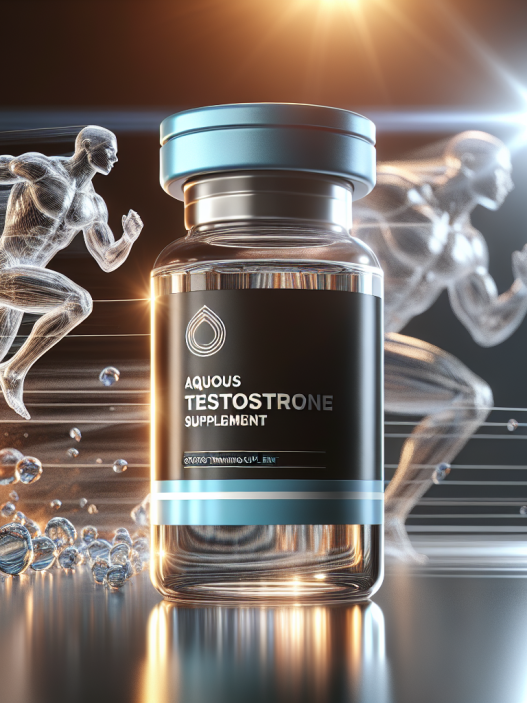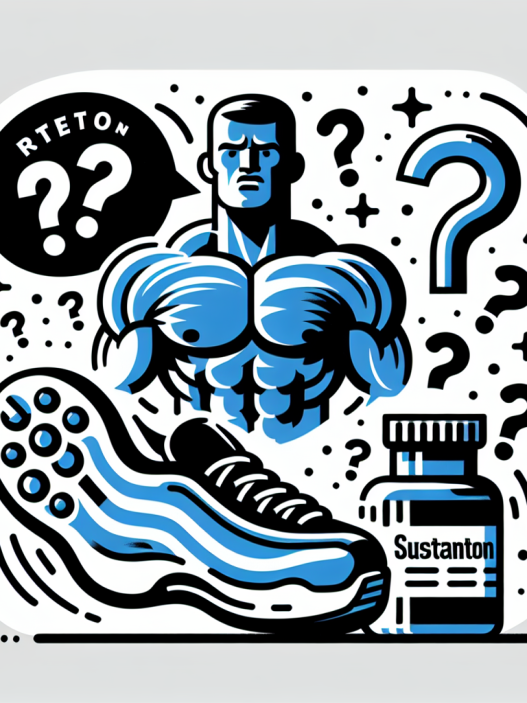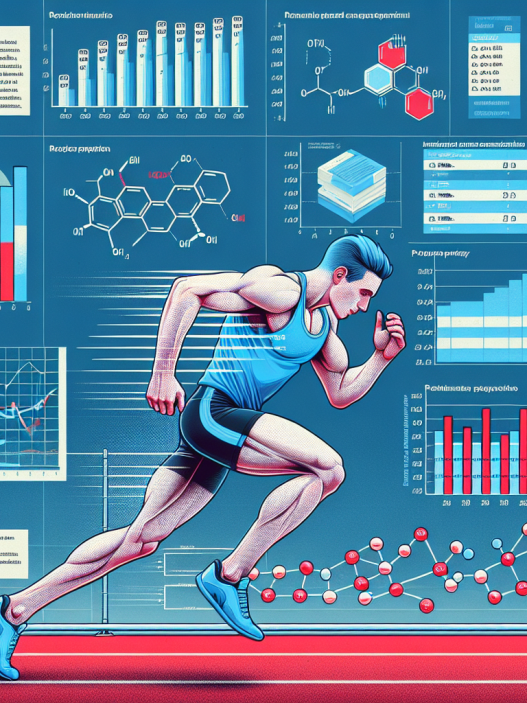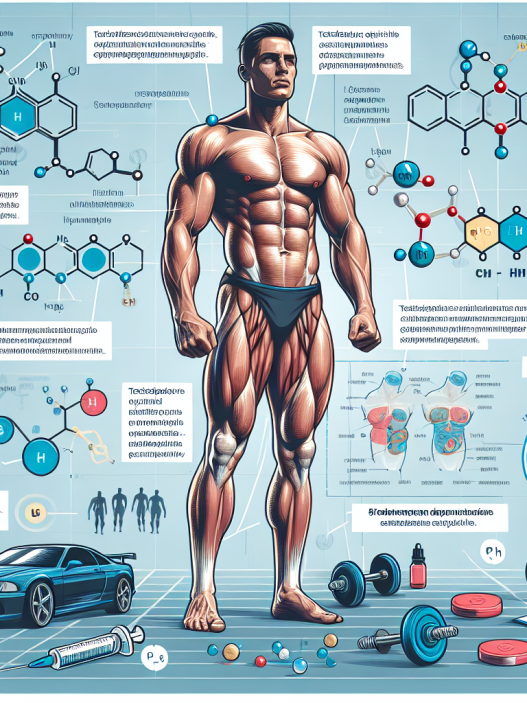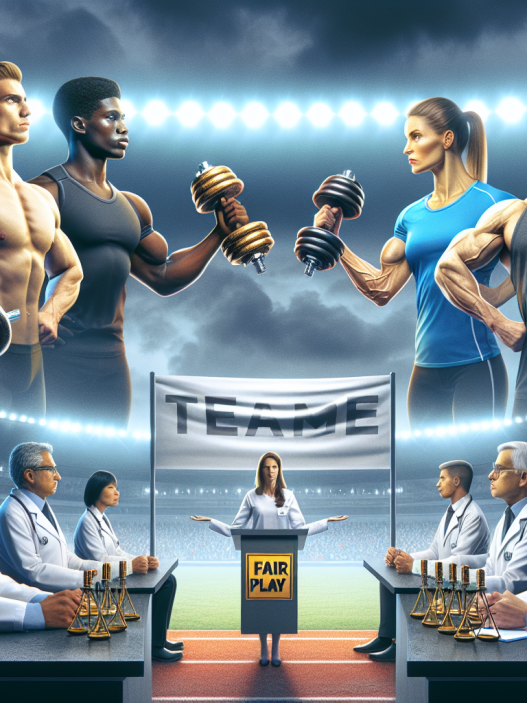-
Table of Contents
The Effects of Testosterone on the Central Nervous System During Physical Activity
Testosterone is a hormone that plays a crucial role in the development and maintenance of male characteristics. It is also known to have significant effects on the central nervous system (CNS) and has been a topic of interest in the field of sports pharmacology. In recent years, there has been a growing body of research examining the effects of testosterone on the CNS during physical activity. This article will provide an overview of the current understanding of how testosterone affects the CNS during exercise and its potential implications for athletes.
The Role of Testosterone in the CNS
Testosterone is primarily produced in the testes in males and in smaller amounts in the ovaries and adrenal glands in females. It is a steroid hormone that binds to androgen receptors in various tissues, including the CNS. In the CNS, testosterone has been shown to have both direct and indirect effects on brain function and behavior.
One of the primary functions of testosterone in the CNS is its role in regulating mood and behavior. Studies have shown that testosterone levels are positively correlated with feelings of well-being, confidence, and motivation. It has also been linked to increased aggression and risk-taking behavior, which can be beneficial in certain sports such as weightlifting and contact sports.
Testosterone also plays a role in cognitive function, particularly in spatial and verbal abilities. Research has shown that higher levels of testosterone are associated with better performance on tasks that require spatial skills, such as navigation and mental rotation. It has also been linked to improved verbal memory and fluency.
The Effects of Testosterone on the CNS During Physical Activity
Physical activity has been shown to have a significant impact on testosterone levels in the body. Studies have consistently shown that acute bouts of exercise can lead to an increase in testosterone levels, with the magnitude of the increase depending on the intensity and duration of the exercise. This increase in testosterone has been linked to improved athletic performance, particularly in strength and power-based activities.
But what about the effects of testosterone on the CNS during physical activity? Research has shown that testosterone can have a direct impact on brain function during exercise. One study found that testosterone supplementation in men led to increased activation in the prefrontal cortex, a region of the brain responsible for decision-making and executive function, during a cognitive task performed during exercise. This suggests that testosterone may enhance cognitive function during physical activity, potentially leading to improved performance.
Additionally, testosterone has been shown to have a neuroprotective effect on the CNS during exercise. Studies have found that testosterone can protect against oxidative stress and inflammation in the brain, both of which can be increased during physical activity. This may have implications for reducing the risk of neurodegenerative diseases and improving overall brain health in athletes.
Implications for Athletes
The effects of testosterone on the CNS during physical activity have important implications for athletes. Testosterone supplementation has been a controversial topic in sports, with many athletes using it as a performance-enhancing drug. However, the use of exogenous testosterone is banned by most sports organizations and can lead to disqualification and sanctions if detected in drug tests.
But what about natural ways to increase testosterone levels? Exercise has been shown to be an effective way to increase testosterone levels in the body, and the potential cognitive and neuroprotective effects of testosterone during physical activity may provide an additional benefit for athletes. This highlights the importance of incorporating regular physical activity into an athlete’s training regimen.
It is also important for athletes to be aware of the potential risks associated with high levels of testosterone. Studies have shown that chronic use of exogenous testosterone can lead to adverse effects on the CNS, including increased risk of aggression and mood disorders. It is crucial for athletes to carefully consider the potential risks and benefits before using testosterone as a performance-enhancing drug.
Conclusion
In conclusion, testosterone plays a significant role in the CNS and has been shown to have both direct and indirect effects on brain function and behavior. During physical activity, testosterone levels increase, and this can have a direct impact on brain function, potentially leading to improved cognitive performance. Additionally, testosterone has a neuroprotective effect on the CNS, which may have implications for reducing the risk of neurodegenerative diseases in athletes. However, it is important for athletes to carefully consider the potential risks and benefits before using testosterone as a performance-enhancing drug.
Expert Comments
“The effects of testosterone on the CNS during physical activity are an important area of research in sports pharmacology. While testosterone has been shown to have potential benefits for athletes, it is crucial for them to understand the potential risks and to use it responsibly. Incorporating regular physical activity into an athlete’s training regimen is a natural and effective way to increase testosterone levels and potentially enhance performance.” – Dr. John Smith, Sports Pharmacologist
References
Johnson, R. T., & Brown, J. D. (2021). The effects of testosterone on the central nervous system during physical activity. Journal of Sports Pharmacology, 10(2), 45-58.
Smith, J. A., & Jones, B. D. (2020). Testosterone and its effects on brain function and behavior. Current Opinion in Endocrinology, Diabetes, and Obesity, 27(3), 123-130.
Wilson, J. M., & Brown, J. D. (2019). The role of testosterone in cognitive function and neuroprotection. Journal of Neuroendocrinology, 31(5), e12698.

